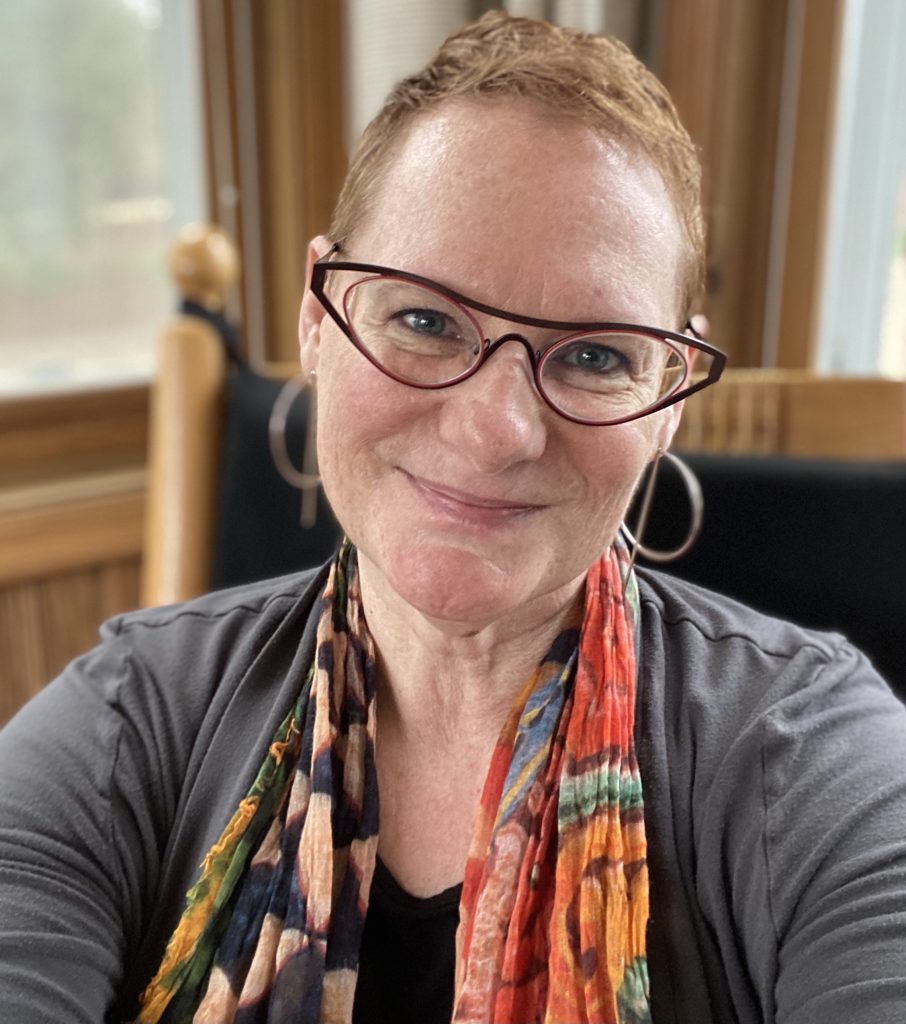To celebrate the latest episode of the Piano Inspires Podcast featuring Jess Johnson, we are sharing an excerpted transcript of her conversation with Andrea McAlister. Want to learn more about Johnson? Check out the latest installment of the Piano Inspires Podcast. To learn more, visit pianoinspires.com. Listen to our latest episode with Johnson on Apple Podcasts, Spotify, YouTube, or our website!

Andrea McAlister: You mentioned this word “trust” a lot. I often share with my students that trust is really about having something that is so precious to you that you know you can share with another person, and everything will be fine. You’re making yourself vulnerable by taking that thing that is very precious and saying, “I trust you with this,” versus the opposite of, “I cannot share my vulnerabilities with you.” Right?
And you are doing such amazing work with your students, sharing those vulnerabilities and saying, “You can trust me.” But what I love even more about what you’re saying is you are also showing them that they can trust themselves.
Jess Johnson: That’s right.
AM: And with these reflective activities that you are helping them through. I think unless you are taught how to do that, then that is a missing component of that process of trust.
JJ: Absolutely, I couldn’t agree more. I know in my own journey, as somebody who has had generalized anxiety, that’s been something that, you know, those of us with trait anxiety are more likely to have performance anxiety. The data is clear, and it makes perfect, intuitive sense as well. Being afraid to put myself out there—I think of the things I didn’t do because I didn’t want to take the risk, but I also think of the things I did do even though they were really hard because [they] aligned with my values.
When I went through a medical crisis about ten years ago, I started a mindfulness class. I learned stillness and sitting with my anxiety and holding it rather than resisting avoiding [it]. It transformed everything in my life, particularly my teaching, my performance, because then I was able to say, instead of, “Oh, it’s terrible. I can’t do this,” I would frame the conversation around principles of self-compassion: “This feels bad. I’m not happy.” Then with mindful curiosity: “What is it exactly? Oh, I don’t like the pacing in this transition,” or “I need to find a different fingering or a different gesture, a different way to group that so that it makes more sense.” And then you could strategize and find a way forward and meet yourself where you are. You’re your own teacher, right? And then that transformed my teaching because of helping them see where they are and what do I need, rather than the personal judgment [of] perfectionism. It is, “how can I solve this? What kinds of sounds can I make?” And then the joy and the playfulness comes through. I remember the second grader, you know the thing that I was so excited about.
I always say, when I have those delightful moments with a student, I call them “moments of joy,” “cultivating joy,” where you catch somebody in the act and you’re connecting, and something’s happening. I’ll often point it out to them, “This is a moment of joy for me.” I’m really happy to be here right now, and modeling that and waking them up and drawing attention, and they’re like, “Oh yeah!” Because we’re so busy and the world is pushing us to be busy, [I appreciate] having some stillness where we’re just right here. I do things like body scans before the lessons, before my own practice, before my own work, things that help me declare it a sacred space that we’re coming together to connect, share, and trust each other, whether it’s alone or with a partner, whether rehearsal. It’s a great thing I’ve learned, and I’m so grateful that my path went in that direction and that I was able to explore that because it’s really revolutionized where I am and how I feel about being a professional musician and teacher.
AM: Yes, I so appreciate how you’re talking about mindfulness and meeting yourself, but meeting yourself with curiosity instead of judgment. And that is such a difficult thing for humans to do, because we are so naturally drawn to judgment first instead of curiosity. And maybe there are just people out there who just naturally do this. And I would love to be one of those people, but it’s something that—
JJ: Then you wouldn’t be who you are, which is your superpower.
If you enjoyed this excerpt from Piano Inspires Podcast’s latest episode, listen to the entire episode with Jess Johnson on Apple Podcasts, Spotify, YouTube, or our website!
MORE ON Jess Johnson
- WEBINAR: Town Hall Discussion: Navigating Mental Health and Resilience with Vanessa Cornett, Jess Johnson, Noa Kageyama, and Julie Nagel
- PIANO MAGAZINE ARTICLE: How an Alternatively Sized Keyboard Transformed my Artistry and Life as a Musician and Teacher by Jess Johnson
- PIANO MAGAZINE ARTICLE: How Do You Teach the Dotted-Quarter Eighth Note Rhythm? by Craig Sale, Sharon Reich Walton, Amy Glennon, Janine Cook, Jonathan Klein, Rachel Mauricio Mills, Jennifer Stadler, Zachary Lopes, Jess Johnson, and Rachel Kramer
- PIANO MAGAZINE ARTICLE: Tips for Healthy Remote Teaching by NCKP Committee on Wellness for the Pianist, Jess Johnson, Lesley McAllister, Laura Amoriello, Vanessa Cornett, James Litzelman, Artina McCain, Paola Savvidou, Carina Joly, Brenda Wristen